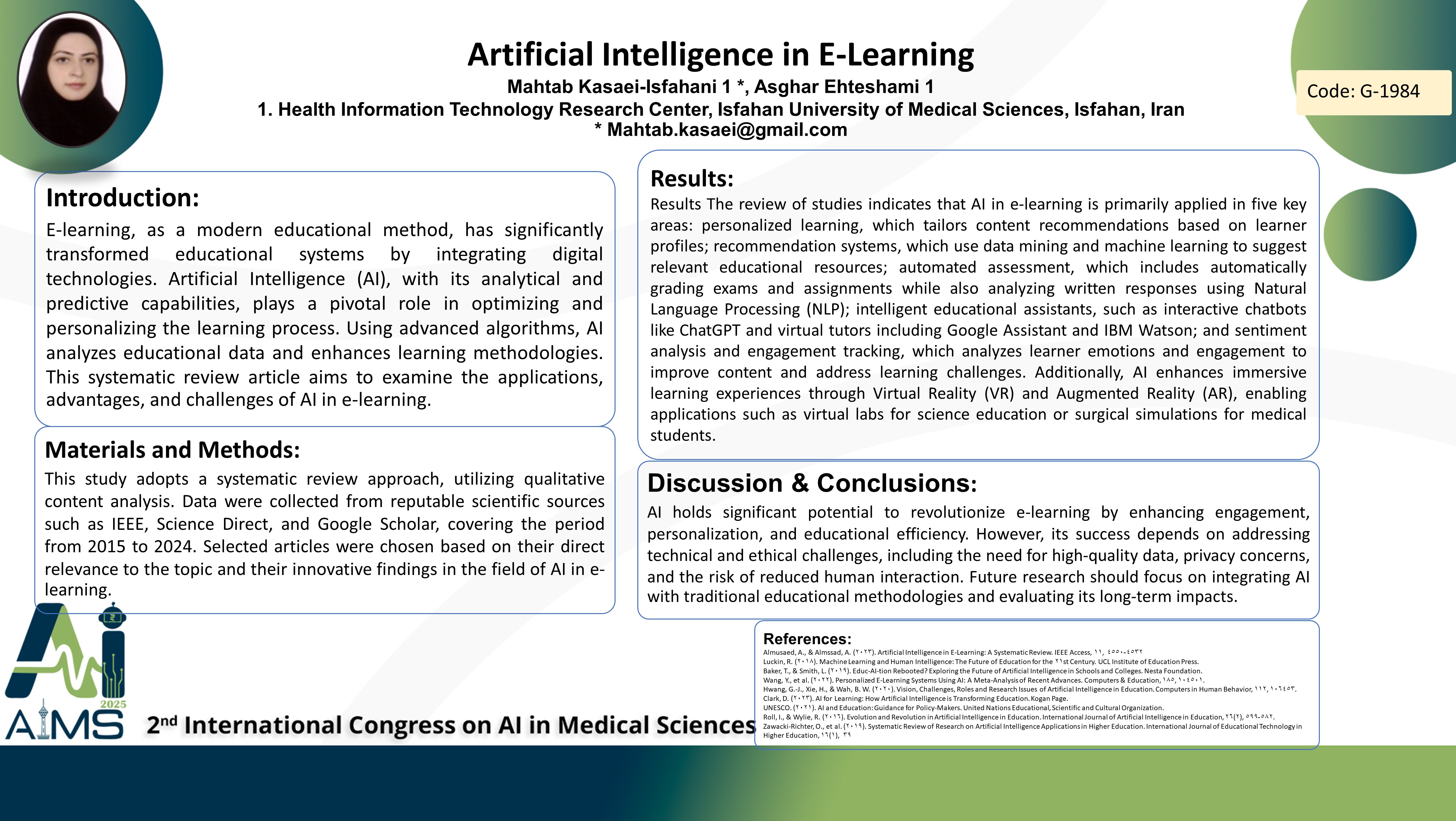Artificial Intelligence in E-Learning
کد: G-1984
نویسندگان: Mahtab Kasaei-Isfahani * ℗, Asghar Ehteshami
زمان بندی: زمان بندی نشده!
برچسب: دستیار مجازی هوشمند
دانلود: دانلود پوستر
خلاصه مقاله:
خلاصه مقاله
Background and aims: E-learning, as a modern educational method, has significantly transformed educational systems by integrating digital technologies. Artificial Intelligence (AI), with its analytical and predictive capabilities, plays a pivotal role in optimizing and personalizing the learning process. Using advanced algorithms, AI analyzes educational data and enhances learning methodologies. This systematic review article aims to examine the applications, advantages, and challenges of AI in e-learning. Method: This study adopts a systematic review approach, utilizing qualitative content analysis. Data were collected from reputable scientific sources such as IEEE, Science Direct, and Google Scholar, covering the period from 2015 to 2024. Selected articles were chosen based on their direct relevance to the topic and their innovative findings in the field of AI in e-learning. Results The review of studies indicates that AI in e-learning is primarily applied in five key areas: personalized learning, which tailors content recommendations based on learner profiles; recommendation systems, which use data mining and machine learning to suggest relevant educational resources; automated assessment, which includes automatically grading exams and assignments while also analyzing written responses using Natural Language Processing (NLP); intelligent educational assistants, such as interactive chatbots like ChatGPT and virtual tutors including Google Assistant and IBM Watson; and sentiment analysis and engagement tracking, which analyzes learner emotions and engagement to improve content and address learning challenges. Additionally, AI enhances immersive learning experiences through Virtual Reality (VR) and Augmented Reality (AR), enabling applications such as virtual labs for science education or surgical simulations for medical students. Conclusion : AI holds significant potential to revolutionize e-learning by enhancing engagement, personalization, and educational efficiency. However, its success depends on addressing technical and ethical challenges, including the need for high-quality data, privacy concerns, and the risk of reduced human interaction. Future research should focus on integrating AI with traditional educational methodologies and evaluating its long-term impacts.
کلمات کلیدی
Artificial Intelligence, E-Learning; Personalized Learning; Automated
